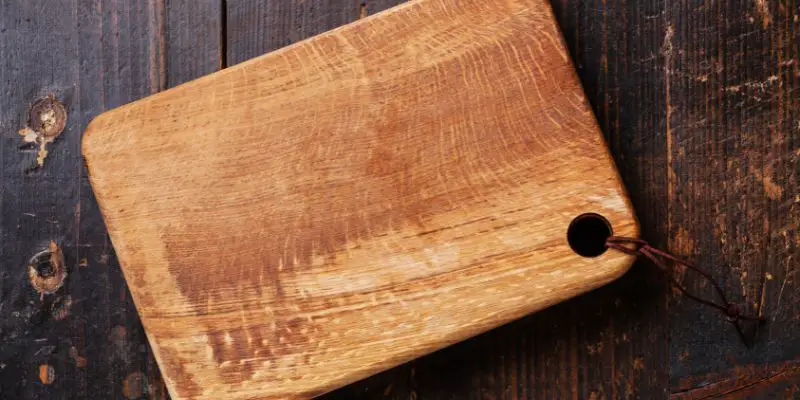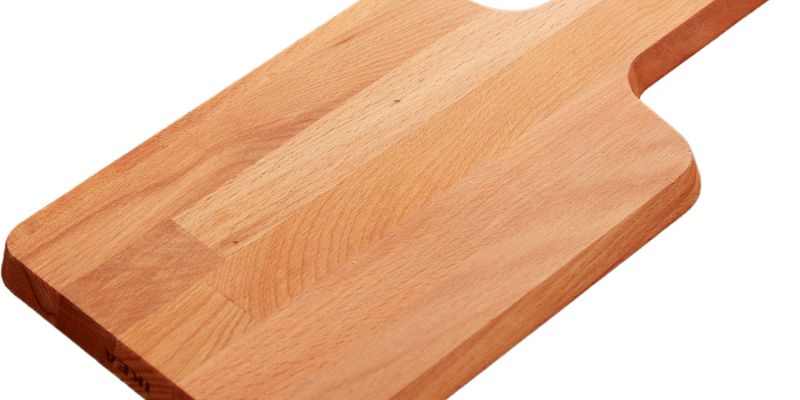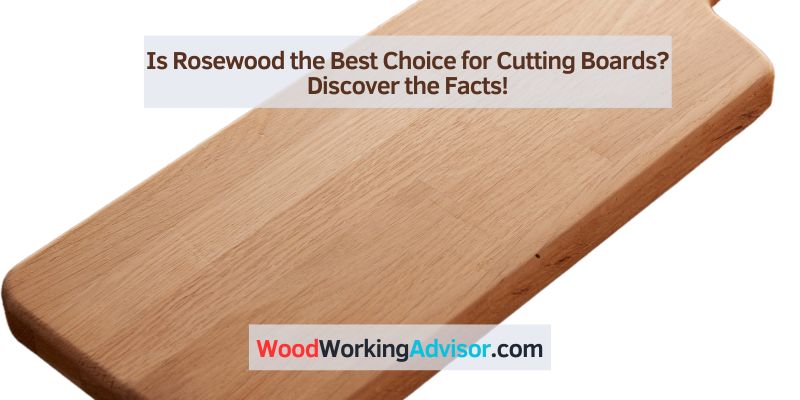Yes, rosewood is an excellent choice for cutting boards due to its durability and natural oil content that helps to resist stains and bacteria buildup. Rosewood is a preferred material for cutting boards as it combines both aesthetic appeal and practicality.
Known for its exceptional durability and natural oils, rosewood has the ability to resist stains and prevent the buildup of bacteria, making it an excellent choice for a kitchen essential. Whether you are a professional chef or a home cook, using a rosewood cutting board can enhance your culinary experience.
In addition, the rich and distinctive grain patterns of rosewood add a touch of elegance to your kitchen decor. With proper care and maintenance, a rosewood cutting board can last for many years, making it a worthy investment for anyone who values both functionality and style in their kitchen.
Pros And Cons Of Rosewood Cutting Boards
Rosewood is a popular choice for cutting boards due to its durability and beautiful grain. However, like any material, it also has its advantages and disadvantages as a cutting board material. In this article, we will explore both the pros and cons of using rosewood cutting boards, helping you decide if it’s the right choice for your kitchen.

Advantages Of Rosewood
Rosewood cutting boards offer several advantages that make them a preferred choice among chefs and cooking enthusiasts:
- Durability: Rosewood is known for its exceptional strength and durability. It can withstand heavy use and regular knife contact without sustaining significant damage. This makes rosewood cutting boards long-lasting and a good investment for your kitchen.
- Resistance to warping: Rosewood is less prone to warping and cracking compared to other wood types. Its natural oils and dense grain structure help it maintain its shape, even under high humidity and temperature changes.
- Antibacterial properties: Rosewood possesses natural antibacterial properties, making it resistant to germs and food-borne pathogens. This can be particularly beneficial for cutting boards, as it reduces the risk of cross-contamination during food preparation.
- Exquisite appearance: Rosewood’s rich, dark tones and distinctive grain patterns give cutting boards a luxurious and sophisticated look. It adds aesthetic appeal to your kitchen and can enhance the overall presentation of your culinary creations.
Disadvantages Of Rosewood
While rosewood cutting boards offer several advantages, there are also some potential downsides to consider:
- High cost: Rosewood is considered a premium wood, often making it more expensive compared to other cutting board materials. If you’re on a tight budget, a rosewood cutting board may not be the most cost-effective option.
- Weight: Rosewood is a dense and heavy wood, which can make it cumbersome to handle. If you prefer a lightweight cutting board that you can easily move around your kitchen, rosewood may not be the ideal choice for you.
- Maintenance: While rosewood is generally low-maintenance, it may require occasional oiling to maintain its appearance and prevent drying out. This additional upkeep should be considered when choosing a cutting board material.
- Restricted availability: Rosewood is protected under international trade regulations due to its limited availability and potential over-harvesting. This can make it challenging to find authentic rosewood cutting boards in some areas.
Alternatives To Rosewood For Cutting Boards
When it comes to choosing a cutting board material, rosewood has long been considered a top choice. However, due to concerns about sustainability and legality, many people are now seeking alternatives that are equally as durable and functional. In this article, we will explore some of the best options available. Read on to discover the alternatives to rosewood for cutting boards.
Bamboo Cutting Boards
Bamboo cutting boards are a popular choice for those searching for an environmentally friendly alternative to rosewood. Not only is bamboo a renewable resource, but it also possesses natural antibacterial properties that can help keep your food prep area hygienic. Bamboo cutting boards are known for their durability and resistance to knife marks, making them a great long-term investment for your kitchen. Additionally, their light weight and easy maintenance make them convenient and user-friendly.
Plastic Cutting Boards
In recent years, plastic cutting boards have gained traction among home cooks and professionals alike. While they may not have the same natural appeal as rosewood or bamboo, plastic cutting boards offer several advantages. Firstly, they are highly affordable, making them an attractive option for budget-conscious individuals. They are also exceptionally easy to clean and sanitize, as they can be placed in the dishwasher. Plastic cutting boards are available in a wide range of colors and sizes, allowing you to choose one that matches your kitchen decor and meets your specific needs.
Hybrid Cutting Boards
If you desire the best of both worlds, a hybrid cutting board may be the ideal solution for you. These cutting boards combine the durability and aesthetic qualities of natural materials like bamboo or wood with the convenience and low maintenance of plastic. Hybrid cutting boards typically have a plastic cutting surface bonded to a wooden or bamboo core, providing a stable and knife-friendly surface. They offer the benefits of both materials, including durability, resistance to knife marks, and ease of cleaning. With a hybrid cutting board, you can enjoy the natural appeal of wood or bamboo without sacrificing the practicality of plastic.
Making An Informed Decision
Choosing the right cutting board for your kitchen can sometimes feel like navigating through a maze. With a variety of materials available, each with its own set of advantages and drawbacks, it’s important to make an informed decision. In this article, we’ll focus on rosewood as a potential candidate for cutting boards and discuss various factors you should consider before making your choice.
Considerations When Choosing A Cutting Board
When it comes to selecting a cutting board, there are a few key considerations that should guide your decision-making process:
- Hygiene: One of the most critical factors is the board’s resistance to bacteria and food contamination.
- Durability: A cutting board should be strong enough to withstand heavy usage and not develop deep grooves or cracks easily.
- Knife-friendliness: The surface of the board should be gentle on your knives, preventing excessive dulling or nicks.
- Aesthetics: Many people like their cutting board to blend seamlessly with their kitchen decor.
Personal Preferences And Usage Patterns
Personal preferences and usage patterns play a significant role in your choice of cutting board material. Some prefer lightweight and easy-to-clean options, while others prioritize sturdiness and longevity. Consider how often you cook, your type of cuisine, and the frequency of knife usage. For example, if you frequently chop vegetables or fruits, a wood cutting board like rosewood may be an excellent choice due to its exceptional durability and knife-friendliness.
Understanding Maintenance And Care Requirements
Each material has its own unique maintenance and care requirements. It’s crucial to understand these to ensure your cutting board remains in optimal condition over time. Rosewood, for example, typically requires periodic oiling to maintain its luster and prevent drying or cracking. Regular cleaning with mild soap and warm water is also recommended to prevent the buildup of bacteria.

Weighing The Costs And Benefits
When evaluating the suitability of a cutting board material, it’s important to weigh the costs and benefits. Rosewood is known for its exceptional durability, which means it can last for years with proper care. However, it’s worth considering the potential higher initial cost compared to other materials. By taking into account the long-term benefits and potential savings, you can make a more informed decision.
In conclusion, choosing the right cutting board involves making informed decisions based on various factors like hygiene, durability, knife-friendliness, personal preferences, usage patterns, maintenance requirements, and cost-benefit analysis. By carefully considering each of these aspects, you can select a cutting board that meets your needs and enhances your culinary experience.
Frequently Asked Questions On Is Rosewood Good For Cutting Boards
How Do You Treat Rosewood Cutting Boards?
To treat rosewood cutting boards, start by washing them with mild soap and warm water. Dry them thoroughly and apply a food-grade mineral oil to nourish the wood. Let the oil sit for a few hours before wiping off any excess.
Repeat this process every month to keep the cutting board in good condition.
What Kind Of Wood Is Best For Cutting Boards?
The best wood for cutting boards is hardwood, such as maple, walnut, or cherry. These woods are durable, non-toxic, and won’t dull your knives. They also have natural antimicrobial properties, making them safe for food preparation. Choose a wood that suits your style and budget.
What Type Of Material Is Not Recommended For Cutting Boards Why?
Glass and porcelain materials are not recommended for cutting boards due to their hard surfaces. These materials can dull knife blades and increase the risk of slips or accidents during food preparation. It is best to use cutting boards made of wood, bamboo, or plastic for efficient and safe chopping.
Is Rosewood Hard To Cut?
Rosewood is known for being quite hard to cut due to its dense and heavy nature. The dense wood can make it challenging to work with and may require specialized tools and techniques to achieve precise cuts.
Conclusion
Rosewood is an excellent choice for cutting boards due to its durability, natural antibacterial properties, and beautiful aesthetic. With its dense grain, it is resistant to knife marks and can withstand heavy use. While it may be pricier than some alternatives, the long lifespan of rosewood cutting boards makes it a worthwhile investment.
Whether you’re a professional chef or a home cook, a rosewood cutting board can elevate your culinary experience.



3 thoughts on “Is Rosewood the Best Choice for Cutting Boards? Discover the Facts!”